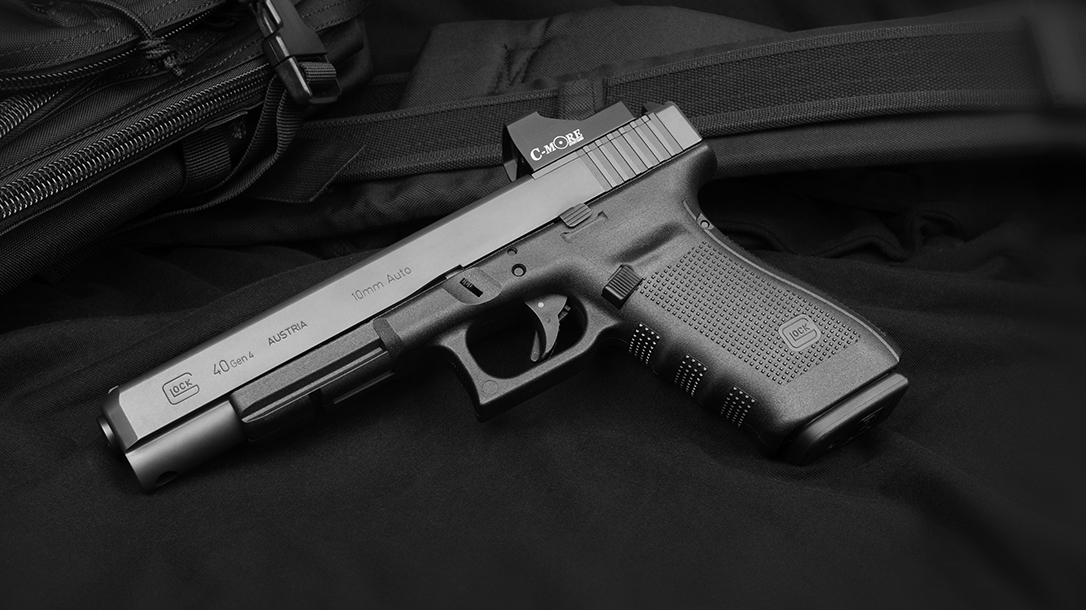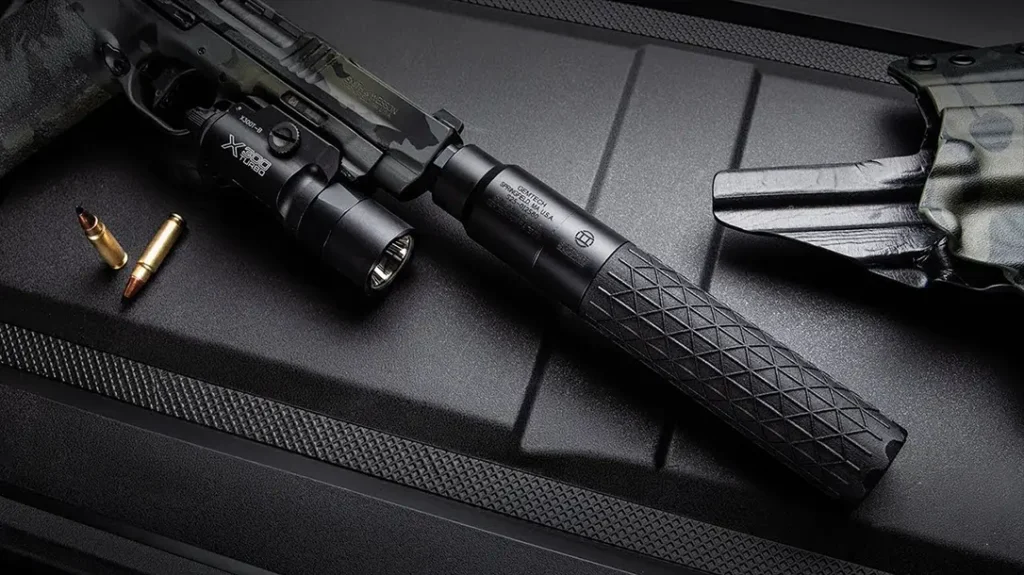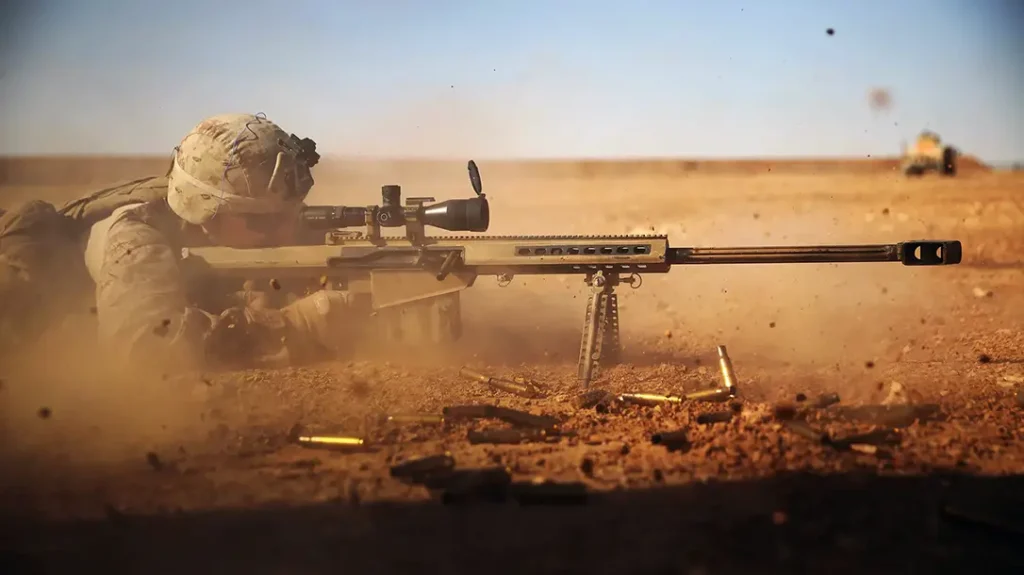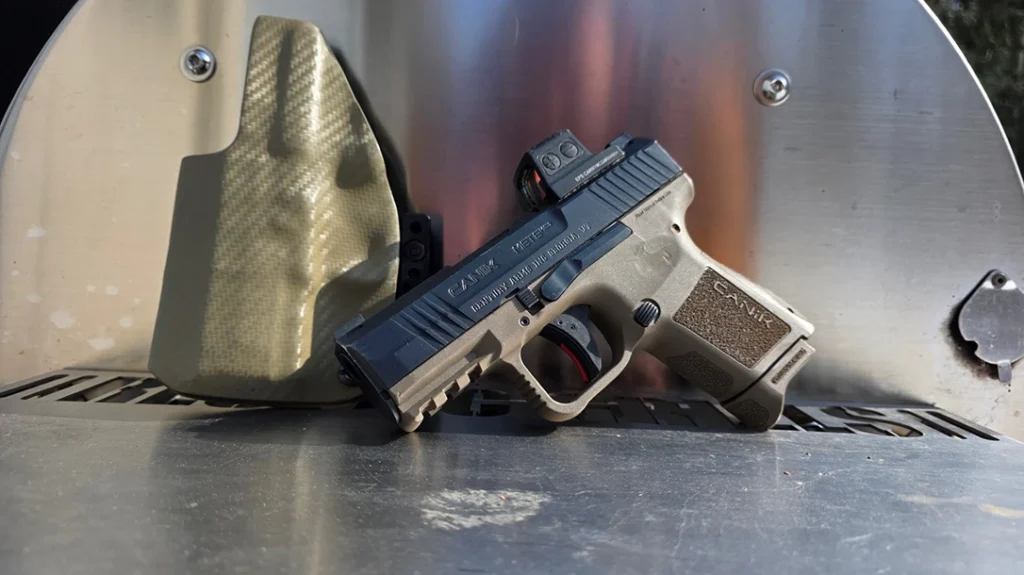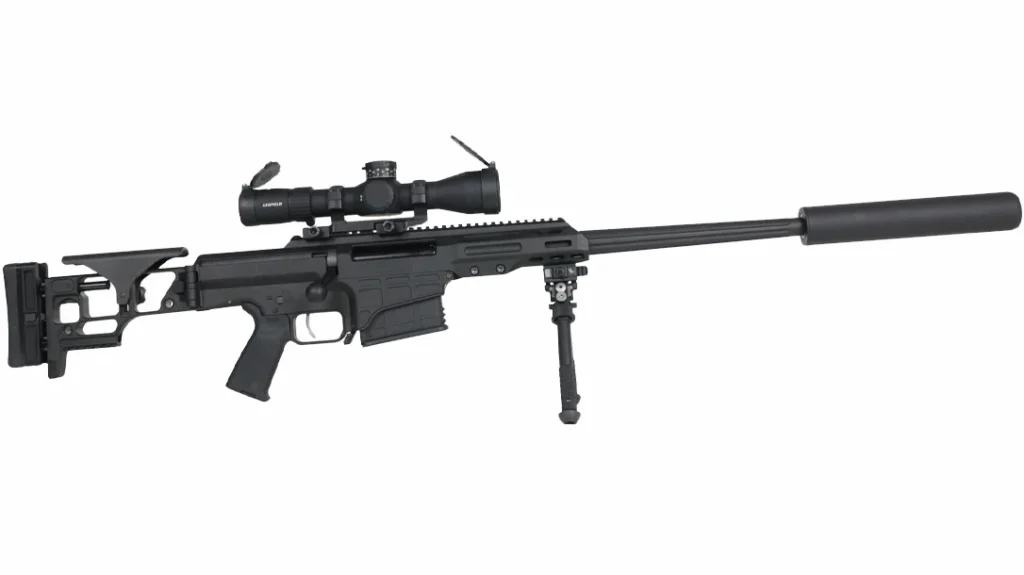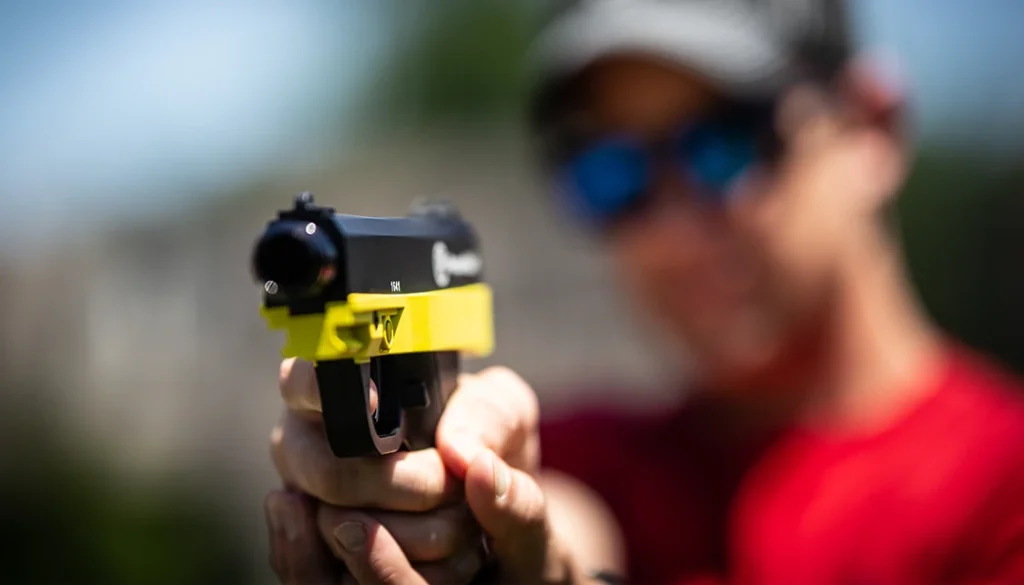10mm vs .44 Magnum: Powerful Backwoods Guns
The .44 Magnum and 10mm are two common choices for a “woods-walking” gun. The .44 Magnum has been around since the 1950s and is a staple of American culture. Most Americans can recall the iconic role it played in Dirty Harry. The S&W Model 29 revolver was almost as much of a character as Harry Callahan himself.
The 10mm was introduced in the 1980s. It was popularized on the small screen in Miami Vice. Despite varied success over the years, it has experienced a resurgence recently. You can now get a factory pistol in 10mm, ranging from a small Glock 29 all the way to a big Ruger revolver, and pretty much everything in between. The only semi-auto .44 I’m aware of is the massive Desert Eagle by Magnum Research.
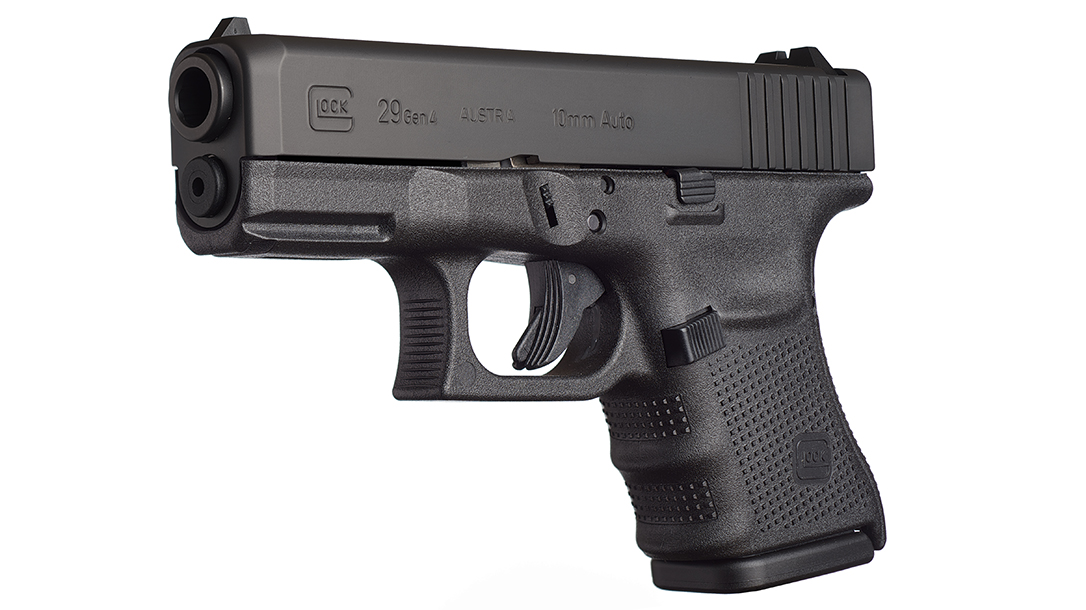
Advertisement — Continue Reading Below
While there are many .44 Magnum revolvers out there, the perennial favorites are the blued S&W Model 29 and stainless Model 629. Both have been offered with various barrel lengths over the years, from 3 inches all the way up to 10.63 inches. For semi-auto pistols, popular 10 mm models include the Glock 20, Glock 29 and Glock 40. The Glock 20 comes from the factory with a 4.6-inch barrel, while the Glock 29 is smaller and sports a 3.77-inch barrel. The Glock 40 sports a longer slide and a 6.02-inch barrel. Models with shorter barrels are a good choice if size and weight are a concern. However, the extra effort of carrying a larger gun with a longer barrel may pay off for the ballistic benefits alone.
The Everlasting .44 Magnum Round
Now, I can argue that the .44 Magnum is the superior caliber and show ballistic evidence to prove my point. But if you just don’t like revolvers, all of that will fall on deaf ears. Alternatively, I can argue that the only way to go into the woods with confidence is with a magazine loaded with 15 or more rounds of hot 10mm ammo, but if you are fearful of trusting your life to an autoloader, it’ll be a moot point. I equate the decision to getting a tattoo: It’s a personal preference, and only you can make that decision.
The .44 Magnum has the advantage of a longer history. I would be willing to bet that more animals have been taken by the .44 Magnum than most other handgun cartridges, save for maybe the .22 LR. There is a plethora of choices when it comes to bullet weight, type and manufacturer. Walk into any sporting goods store and you’ll likely find multiple loadings to choose from. If you are a reloader, there are recipes for days on suitable loads for every use.
Advertisement — Continue Reading Below
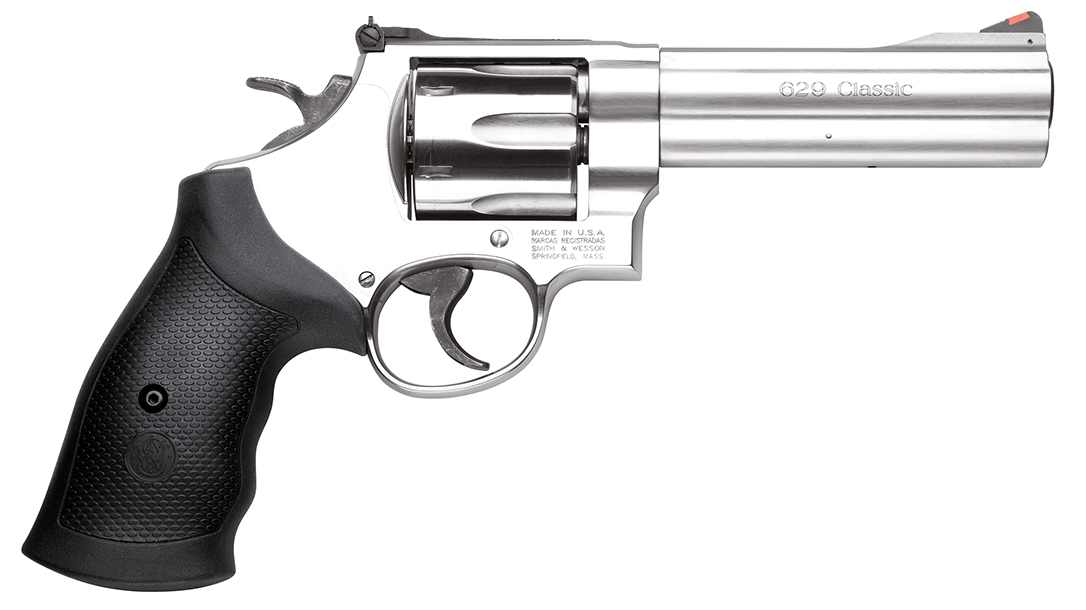
The downside? These cartridges are relatively large and heavy. When walking in the woods, weight can become an issue. As such, carrying your gun, holster and backwoods ammo can start to add up. Revolvers, for example, are generally all steel. This is great for controlling muzzle flip and perceived recoil, but it can wreak havoc on weight. My test pistol, a 5-inch-barreled S&W Model 629 Classic, holds six .44 Magnum rounds. Unloaded, it weighs almost 45 ounces, and when loaded with the heaviest ammo I have, it weighs in at 52 ounces.
10mm Upstart
The 10mm’s main advantage is how much ammo you can fit in a small package. Sharing the .40 S&W’s case diameter, you can pack quite a few rounds in a double-stack magazine. The subcompact Glock 29 holds 10+1 rounds. The Glock 20 and Glock 40 both come with 15-round magazines. Add an Arredondo magazine extension and, for a slight increase in overall length, you get five more rounds. With 21 rounds on top, even the most anxious person will feel confident that can get the job done when needed. There are quite a few 10mm loadings these days, too, covering all backwoods ammo needs.
Advertisement — Continue Reading Below
Reliability is paramount for any weapon. All the stopping power in the world won’t do you a bit of good if the gun doesn’t fire. The general consensus gives the nod to the revolver here. While the trigger and hammer mechanism under the sideplate of a revolver can look intimidating, the system is reliable. Autoloaders can be more finicky. Glocks carry a good reputation, but even they can be affected by the large bullets favored in backwoods ammo. The large projectiles are tougher to feed reliably into the chamber. Regardless of your choice, you should thoroughly test your gun before you venture into the woods.
Backwoods Carry Options
A backpack might be convenient for carrying your chosen gun, but it will drastically slow down your engagement time. So, consider it a last resort. A strong-side belt holster works for many people. It provides quick access and is comfortable to wear. Holsters like this are readily available for nearly every revolver and semi-auto. I prefer Kydex because it doesn’t retain moisture, but leather is also applicable. For my S&W Model 629, I’ve chosen a Kydex rig from RKBA Holsters. It keeps the gun high and tight to the body, which is nice in the woods.
Gunfighters Inc. has a pretty ingenious holster design that’s well-suited to those who venture into the backcountry wearing a hiking pack. Many backpacks utilize a belt to help distribute the weight. These belts can hinder access to your belt holster unless you can attach your holster to the pack’s belt. Enter the Gunfighters Inc. Kenai Chest Holster, made from Kydex and available for a variety of pistols. It has a strap-and-buckle system that makes it easy to don and doff. The straps are adjustable to ensure a perfect fit, regardless of attire. Having a pistol right at your chest is very reassuring. The gun is always in sight and very quick to deploy. Having the straps around your shoulders also helps distribute the weight evenly across your body.
Advertisement — Continue Reading Below
10mm vs .44 Magnum Ammo
So, which is the better backwoods ammo, the .44 Magnum or 10mm? To investigate, I gathered ammo from multiple manufacturers. I ended up with loads from DoubleTap, Federal, Hornady and Underwood. I used a LabRadar system to chronograph each of them.
The LabRadar uses Doppler radar to track the projectile from the muzzle out to almost 100 yards, depending on the caliber. You don’t have to set up finicky screens to shoot through or strap anything to the gun itself. The LabRadar is a bit more fragile than other options, but as long as you are careful, you should be fine. I made sure to utilize the large baseplate, which allows it to sit securely on a tabletop.
10mm vs. 44 Magnum: Velocity Tests
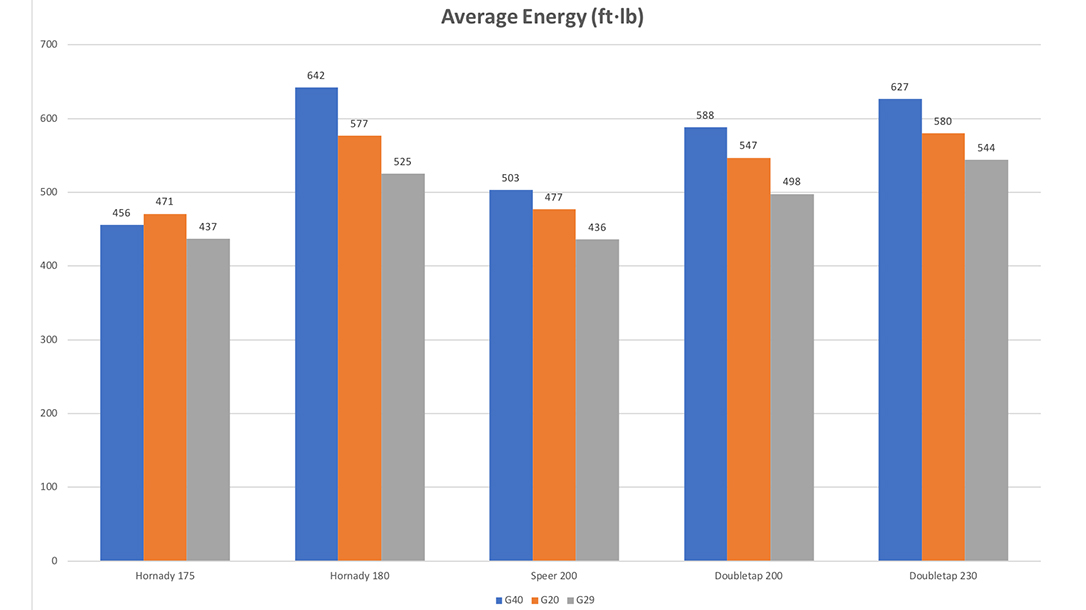
Advertisement — Continue Reading Below
I wanted to see how much velocity is lost in using a shorter barrel, so I ran the same ammo through the Glock 20, Glock 29 and Glock 40. In the end, it became apparent that the 6-inch barrel on the Glock 40 makes it a great option for hunting, not just self-defense. You get every bit of velocity possible with the longer barrel. You also get the added benefit of more weight hanging out front, which helps counter some of the recoil.
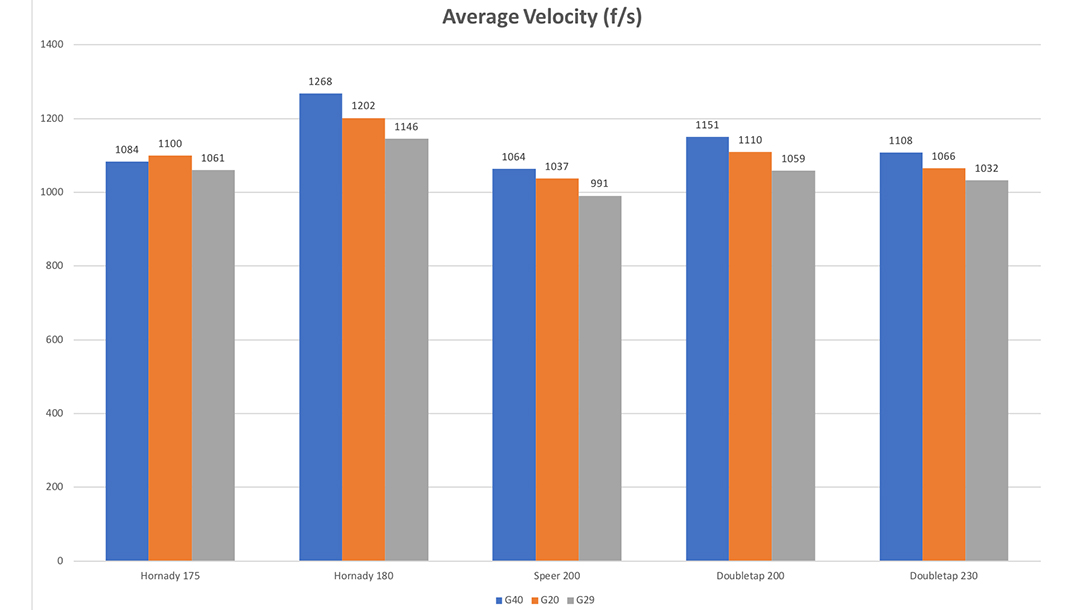
The Glock 40 also comes standard with red-dot mounting plates if you are looking to go that route. But even if you stick with iron sights, the Glock 40 offers the longest sight radius of the three Glocks tested. The Glock 20 offers the same grip but with a shorter slide. However, I became very fond of the Glock 29. Its compact grip frame held sufficient ammo, and its short slide really made it easy to tote around. The Glock 29’s short barrel also gives 10mm ammo enough velocity to ruin almost any animal’s day.
Advertisement — Continue Reading Below
The .44 Magnum chronograph session was a bit more kinetic. These rounds can be punishing after a long-range session. The accompanying table shows what a 5-inch barrel was capable of with the rounds I gathered.
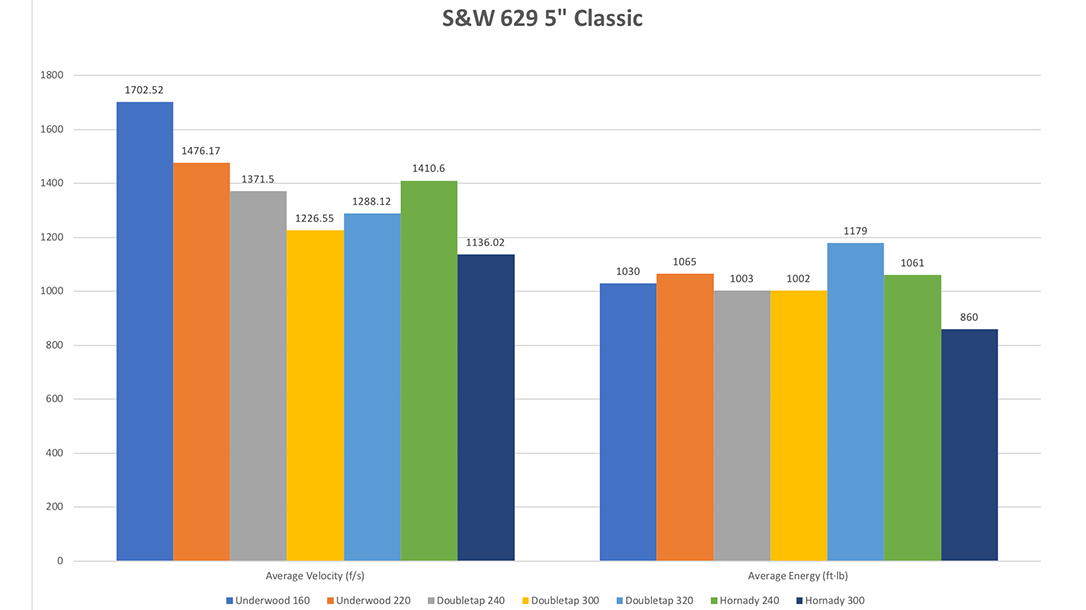
10mm vs .44 Magnum: Use What’s Best for You
So, which is the better backwoods ammo? I don’t know what’s right for you, but for me, I think I prefer the compact package of the Glock 29. If I need more ammo, the Glock 29 can also use full-sized Glock 20 and Glock 40 magazines. I feel the sheer amount of ammo on board and the ability to control the 10mm a bit easier in rapid-fire versus the .44 Magnum makes it my first choice.
But, despite my preference, it doesn’t mean I’ll be selling my .44 Magnum anytime soon. The Model 629 is a true classic and will always have a home in my collection. The great thing about firearms is that you aren’t limited to just having one for any given situation.
This post was updated on Jan. 27, 2026.
